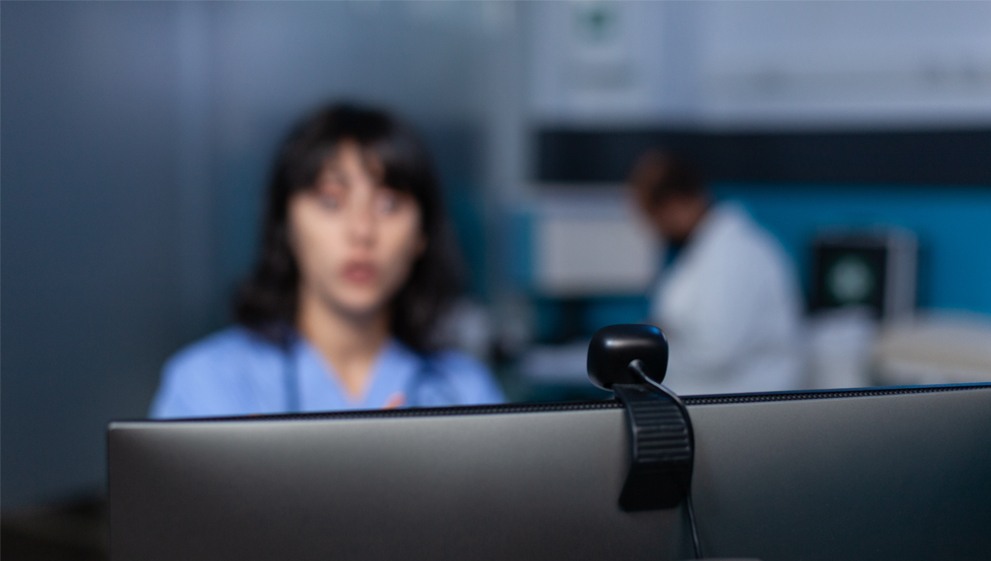Webcam hacking is a serious privacy violation that can leave you feeling vulnerable and exposed. Hackers can gain unauthorized access to your webcam, allowing them to spy on you and your surroundings without your knowledge. This invasion of privacy can have far-reaching consequences, from personal embarrassment to the theft of sensitive information. In this article, we’ll explore what webcam hacking is, how it happens, and most importantly, how you can protect yourself from becoming a victim.
What is Webcam Hacking
Webcam hacking occurs when a malicious actor gains unauthorized access to your webcam, enabling them to remotely control it and capture images or videos without your consent. This type of hacking can happen to anyone, from individuals to businesses, and can have severe consequences. Hackers may use the footage they capture to blackmail victims, steal personal information, or even sell the recordings on the dark web. The thought of someone secretly watching you through your own webcam is unsettling, making it crucial to understand how to protect yourself.
Common Methods Used by Hackers
Hackers employ various techniques to gain access to your webcam. One common method is through malware, which can infect your device when you click on a malicious link, open an infected email attachment, or download software from an untrustworthy source. Once the malware is on your system, it can install a remote access trojan (RAT) that allows the hacker to control your webcam.
Another tactic hackers use is phishing attacks, where they send fraudulent emails posing as legitimate companies or individuals to trick you into revealing sensitive information or installing malware. They may also exploit security vulnerabilities in your operating system, browser, or webcam driver to gain unauthorized access.
Signs That Your Webcam May Be Compromised
Knowing the signs that your webcam may have been hacked is crucial for catching the issue early and minimizing the potential damage. Some indicators to watch out for include:
- Unexpected webcam activity: If your webcam light turns on when you’re not using any applications that require camera access, it could be a sign that someone else is controlling it remotely.
- Unusual files: Check your webcam directory for unfamiliar or suspicious files, especially videos or images you don’t remember creating.
- Slow performance: If your device experiences slower than normal internet speeds or abnormal data usage, it could indicate that a hacker is streaming video from your webcam.
- Strange browser extensions: Be wary of any unfamiliar browser extensions, as they may be malicious programs designed to hack your laptop camera.
Essential Tips for Protecting Your Webcam
Protecting your webcam from hacking requires a combination of proactive measures and good cybersecurity habits. Here are some essential tips to keep your webcam secure:
Use a Physical Webcam Cover
One of the simplest and most effective ways to protect your privacy is to use a physical cover for your webcam when it’s not in use. This can be a dedicated webcam cover, a sticker, or even a piece of tape. By physically blocking the camera lens, you ensure that even if a hacker gains access to your webcam, they won’t be able to see anything.
Keep Software and Firmware Updated
Regularly updating your operating system, browser, and webcam software is crucial for patching security vulnerabilities that hackers could exploit. Enable automatic updates to ensure you always have the latest security fixes, and don’t ignore prompts to install updates when they become available.
Enable Firewall and Antivirus Protection
Firewalls and antivirus software are essential tools for monitoring and blocking unauthorized access attempts to your devices. Enable the built-in firewall in your operating system or install a reputable third-party firewall. Additionally, use a reliable antivirus program like Quick Heal Total Security to detect and prevent malware infections that could compromise your webcam.
Disable Webcam When Not in Use
When you’re not actively using your webcam, disable it through your device settings or physically unplug it if it’s an external camera. This minimizes the window of opportunity for hackers to access your webcam, making it more difficult for them to spy on you.
Be Wary of Third-Party Applications
Be cautious when granting webcam access to third-party applications, especially those from unknown or untrusted sources. Regularly review the permissions you’ve granted to applications and revoke webcam access for those that don’t require it for their core functionality.
Change Default Passwords on Devices
Many webcams and connected devices come with default passwords that are easily guessable by hackers. To enhance your security, change these default passwords to strong, unique ones. Consider using a password manager to generate and store complex passwords securely.
Monitor Active Applications Using Webcam
Periodically check which applications are currently accessing your webcam. Most operating systems have a feature that allows you to see which programs are using the camera at any given time. If you notice any unfamiliar or suspicious applications accessing your webcam, investigate further and take appropriate action.
Educate Family and Friends About Webcam Safety
It’s important to educate your family members and friends about the risks of webcam hacking and the steps they can take to protect themselves. Encourage them to follow the same best practices you employ, such as using physical covers, keeping software updated, and being cautious about granting webcam access to applications. By promoting a culture of cybersecurity awareness, you can help create a safer online environment for everyone.
Best Practices for Safe Online Behavior
In addition to securing your webcam, adopting safe online habits can further protect you against hacking attempts and enhance your overall cybersecurity. Some best practices include:
- Using strong, unique passwords for all your accounts and devices
- Enabling two-factor authentication whenever possible
- Being cautious about clicking links or downloading attachments from unknown sources
- Regularly backing up your important data to protect against ransomware attacks
- Using a virtual private network (VPN) when accessing the internet on public Wi-Fi networks
By following these guidelines, you can significantly reduce the risk of falling victim to hacking webcams and other cyber threats.
Why Quick Heal is Your Best Defense Against Webcam Hacking
Quick Heal is a leading cybersecurity company that offers advanced solutions to protect your devices from malware, unauthorized access, and other online threats. Their flagship product, Quick Heal Total Security, provides comprehensive protection against webcam hacking and other cyber attacks.
With features like anti-malware scanning, firewall protection, and real-time threat detection, Quick Heal Total Security ensures that your webcam remains secure and your privacy is protected. The software also includes a dedicated “Webcam Protection” feature that alerts you whenever an application attempts to access your webcam, giving you complete control over which programs can use it.
By choosing Quick Heal Total Security, you can have peace of mind knowing that your device is protected by cutting-edge technology and a team of cybersecurity experts dedicated to keeping you safe online.
Protect Yourself from Hacking with Quick Heal
In today’s interconnected world, webcam hacking poses a significant threat to personal privacy and security. By understanding the risks and taking proactive steps to secure your webcam, you can protect yourself from the devastating consequences of unauthorized access.
Remember to use physical covers, keep your software updated, enable firewall and antivirus protection, and be cautious about granting webcam access to applications. Additionally, educating your loved ones about webcam safety and adopting safe online habits can further enhance your cybersecurity. By following these essential tips and using reliable security software like Quick Heal Total Security, you can significantly reduce the risk of falling victim to webcam hacking and enjoy a safer, more secure online experience. Stay vigilant, stay informed, and take control of your webcam security today.


